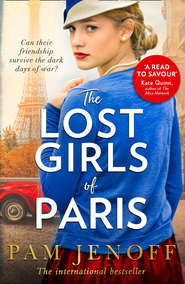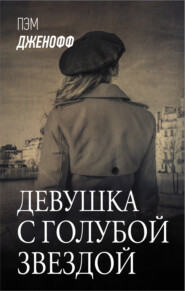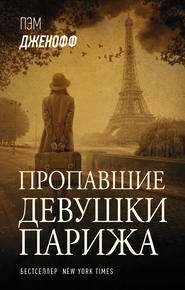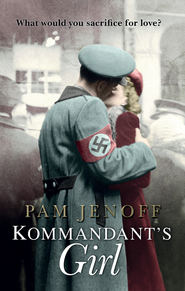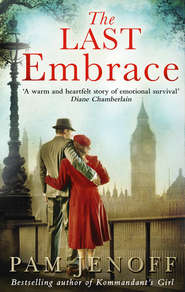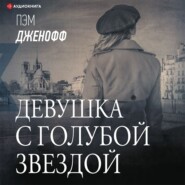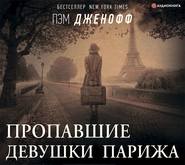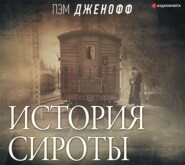По всем вопросам обращайтесь на: info@litportal.ru
(©) 2003-2024.
✖
The Orphan's Tale: The phenomenal international bestseller about courage and loyalty against the odds
Автор
Год написания книги
2018
Настройки чтения
Размер шрифта
Высота строк
Поля
Two hours later when I was packed and ready to go, Erich stood before me in his uniform, so very much like the man I had spied in the audience beyond the lights the day we met. He waited awkwardly as I started for the door, as if seeing out a guest.
I stood in front of him for several seconds, staring up beseechingly, willing his eyes to meet mine. “How can you do this?” I asked. He did not answer. This is not happening, a voice inside me seemed to say. In other circumstances, I would have refused to go. But I had been caught off guard, the wind knocked out of me by an unexpected punch. I was simply too stunned to fight. “Here.” I pulled off my wedding band and held it out. “This isn’t mine anymore.”
Looking down at the ring, his whole face seemed to fall, as if realizing for the first time the finality of what he was doing. I wondered in that moment if he would tear up the papers that decreed our marriage over and say we would face the future together, whatever the odds. He swiped at his eyes.
When his hand moved away the hardness of the “new Erich,” as I called him in the recent months when it had all seemed to change, reappeared. He pushed the ring away and it clattered to the floor. I hurried to pick it up, cheeks stinging from the roughness of his once-gentle touch. “You keep it,” he said. “You can sell it if you need money.” As if the one thing that bound us together meant so little to me. He fled the apartment without looking back and in that moment the years we shared seemed to evaporate and disappear.
Of course I do not know Herr Neuhoff well enough to tell him any of this. “I’ve left Berlin for good,” I say, firmly enough to foreclose further discussion. I run my finger over my wedding band, which I had put on once more as I’d left Berlin so as to attract less attention while traveling.
“So where will you go?” Herr Neuhoff asks. I do not answer. “You should leave Germany,” he adds gently. Leaving. It was the thing that no one talked about anymore, the door that had closed. I’d heard Mama suggest it once years earlier, before things had gotten bad. Then the idea had seemed laughable—we were Germans and our circus had been here for centuries. In hindsight it was the only option, but none of us had been wise enough to take it because no one knew how bad things would become. And now that chance was gone. “Or you could join us,” Herr Neuhoff adds.
“Join you?” The surprise in my voice borders on rude.
He nods. “Our circus. I am missing an aerialist since Angelina broke her hip.” I stare at him, disbelieving. Though the seasonal workers and even performers might transfer between circuses, one circus family working for another is unheard of—I can no more imagine myself part of the Circus Neuhoff than a leopard changing its spots. The suggestion makes sense, though—and the way he phrases it does not sound as if he is offering me charity, but rather that I would be filling a need.
Still, my spine stiffens. “I couldn’t possibly.” To stay here would mean being beholden to Herr Neuhoff, another man. After Erich, I will never do that again.
“Really, you’d be doing me a huge service.” His voice is sincere. I am more than just a spare performer. Having a Klemt join his circus, well, that would be something, at least to the older folks who remembered our act at its heyday. With my name and reputation as an aerialist, I am like a collectible, an item to be had.
“I’m a Jew,” I say. To employ me now would be a crime. Why would he take on such danger?
“I’m aware.” His mustache twitches with amusement. “You are Zirkus Volk,” he adds quietly. That transcends all else.
Still my doubts linger. “You have SS living next door now, don’t you? It will be so dangerous.”
He waves his hand, as if this is of no consequence. “We’ll change your name.” But my name is what he wants—the very thing that makes me most valuable to him. “Astrid,” he pronounces.
“Astrid,” I repeat, trying it on for size. Close to Ingrid, but not the same. And it sounds Scandinavian, vaguely exotic—perfect for the circus. “Astrid Sorrell.”
His eyebrows rise. “Wasn’t that your husband’s surname?”
For a second, I falter, surprised that he had known. Then I nod. Erich had taken everything from me but that. He would never know.
“Plus, I could use your good sense about the business,” he adds. “It’s only me and Emmet.” Herr Neuhoff had been dealt a cruel blow. In the circus, large families are the norm; ours had four brothers, each more handsome and talented than the next. But Herr Neuhoff’s wife had died birthing Emmet and he had not remarried, leaving him alone with just one shiftless heir who had neither the talent to perform nor the head to run the business. Instead, Emmet spent his time gambling in the cities on tour and ogling the dancing girls. I shudder to think what might become of this circus when his father is gone.
“So you’ll stay?” Herr Neuhoff asks. I consider the question. Our two families had not always gotten along. My coming here today had been a change. We were rivals, more so than allies—until now.
I want to say no, to get on a train and keep searching for my family. I’ve had enough of depending on others. But Herr Neuhoff’s eyes are soft; he takes no joy in the misfortune that has befallen my family and is only trying to help. I can already hear the music of the orchestra, and the ache to perform, buried so deep I’d almost forgotten, rises sharply within me. A second chance.
“All right then,” I say finally. I cannot refuse him—and I have nowhere else to go. “We’ll try it. Perhaps on the road, we might hear word of where my family has gone.” He presses his lips together, not wanting to give me false hope.
“You can stay at the house,” he offers. He does not expect me to live in the women’s lodge like a common performer. “It would be good to have the company.”
But I cannot stay up here and hope to have the girls accept me as one of them. “That’s very kind, but I should stay with the others.” As a child, I had always felt more comfortable down in the cabins with the performers. I had yearned to sleep in the women’s quarters, which, despite the too many bodies, smells and noises, had a kind of solidarity.
He nods, acquiescing to the truth in my words. “We’ll pay you thirty a week.” In our circus, money had not been discussed. Wages were paid fairly, with increases over the years. He pulls a paper from the desk drawer and scribbles on it. “Your contract,” he explains. I look at him, confused. With us there had been no contracts—people made verbal agreements and kept them over decades of working together. He continues, “It just says that if you want to leave before the season is over, you will pay us back.” I feel owned in a way I never have before and I hate it.
“Come, I’ll help you get settled.” He leads me out of the house and down the hill in the direction of the cabins. I keep my eyes straight forward, not looking back in the direction of my former home. We near an old gymnasium and my throat tightens. Once my family had practiced here. “They weren’t using it anymore,” he offers, his voice apologetic. But it had been ours. In that moment, I regret the bargain I have made. Working for another circus family feels like treason.
Herr Neuhoff continues on, but I stop in front of the gymnasium door. “I should practice,” I say.
“There’s no need to start today. Surely you will want to get settled.”
“I should practice,” I repeat. If I don’t start now, I never will.
He nods. “Very well. I’ll leave you to it.” As he starts away, I look up from the base of the hill across the valley toward my family home. How can I stay here, so unbearably close to the shadows of the past? I see my brothers’ faces. I will perform where they cannot.
The door to the gymnasium creaks as I pull it open. I set down my valise, twisting my wedding band around my finger. There are a few other performers scattered through the practice hall. Some faces are vaguely familiar, as if from another lifetime; others I do not know at all. At the back of the practice hall by the piano, there is a tall man with a long somber face. Our eyes meet and though I do not recognize him from my circus years, it seems we have met somewhere before. He holds my gaze for several seconds before finally turning away.
I inhale the familiar smell of hay and manure and cigarette smoke and perfume, not so very different. The thick rosin coats the insides of my nostrils and it is as if I had never left.
I take off the wedding band and put it in my pocket, then go to change for rehearsal.
3 (#uce6a8b50-3b0b-5ba3-ad0b-6cbda78e7037)
Noa (#uce6a8b50-3b0b-5ba3-ad0b-6cbda78e7037)
Of course I did not leave him.
I started away from the child, imagining my life just as it had been a few short minutes earlier. The milk truck would go and I could return to my work and pretend none of it ever happened. Then I stopped again. I couldn’t abandon a helpless infant and leave him alone there to die, just as surely as he would have on the train. Quickly I raced to the sour-smelling milk can and pulled him out. A moment later, the engine roared and the truck lurched forward. I clutched the child tighter and he nestled against me forgivingly. His warmth filled my arms. In that second, everything was all right.
The policeman near the train yelled something I couldn’t make out. A second guard appeared on the station platform, holding a snarling Alsatian on a leash. In my panic, I jumped, and the child nearly slipped from my arms. Tightening my hold on him, I ducked around the corner as they raced past me to the train. They couldn’t have possibly noticed one baby missing amid so many. They were pointing, though, from the boxcar door I left open in my haste to my telltale footprints in the snow.
I ran desperately into the station toward the closet where I slept. At the back of the closet there was a rickety ladder leading to the attic. As I reached for it, my foot tangled around a threadbare blanket on the floor. Shaking it off, I started to climb the ladder. But I had only one arm to hold on and I slipped from the second rung, nearly dropping the baby, whose wail rang out, threatening to expose us.
Recovering, I started upward again. The voices grew louder, broken by a sharp bark. I reached the attic, a space with a low ceiling smelling of dead rodents and mold. I hurried through the tangle of empty boxes toward the lone window. My nails ripped as I pried it open. A blast of icy air smacked my face. I leaned forward and put my head through the window, but it was too small. I could not make it past my shoulders.
Below I heard the guards, inside the building now. I pushed the baby quickly through the window and placed him on the sloping, snow-covered roof that overhung the station platform. I steadied him there, praying he did not roll downward or cry out from the iciness against his skin.
I closed the window and hurried down the attic steps, grabbing my broom. As I walked out of the closet, I nearly slammed into one of the guards.
“Guten abend...” I stammered, forcing myself to meet his eyes. He did not respond, but stared at me piercingly.
“Entschuldigen Sie, bitte.” Excusing myself, I walked around the guard, feeling his eyes on me, bracing for his command to stop. I slipped outside and pretended to sweep the coal-tinged snow from the platform until I was sure he wasn’t watching me. Then I raced around the side of the station, staying close to the shadow of the building. I looked up at the low roof, searching for a foothold to reach it. Finding none, I climbed the drainpipe, iciness soaking through my torn tights. As I neared the top, my arms burned. I reached up, praying that the infant was still there. But my fingers closed around emptiness.
My stomach dropped. Had the Germans found the baby? I stretched again, arms straining farther and finding a bit of cloth. I pulled on it, trying to draw the child toward me. But he rolled past my fingertips. I reached for him frantically, grabbing the edge of the cloth diaper just before he fell.
I drew him close to me and scampered down, nearly slipping myself as I struggled to hold on with one hand. At last I reached the ground and tucked the baby securely in my coat. But the Germans were just around the corner, their voices close and angry. Not daring to linger another second, I ran, footsteps breaking the smoothness of snow.
* * *
Hours have passed since I fled the station. I don’t know how many, only that it is deepest night and snowing again, the sky a muted gray. Or it would have been, if I could look up. The storm has grown heavier, though, sharp bits of ice cutting at my eyes and forcing me to tuck my chin once more. I’d gone in the direction away from the hills and toward the shelter of the woods, but the ground that appeared flat in the distance rolls and dips, straining my legs. I cling instead to a smoother path that runs too close to the edge of the forest. I glance nervously at the narrow road that runs parallel to the trees. So far it has thankfully remained deserted.
In the endless blanket of white I imagine our tiny farm, close to the Dutch coast, the air thick with salt and chilled by the North Sea, where I lived with only my parents. Though we had been spared from the air raids that had brought Rotterdam to rubble, occupation had come down hard. The Germans had focused on defending the coastal towns, mining the beaches so we could no longer walk them and billeting soldiers everywhere—which is how I met the one who fathered my child.
He hadn’t forced me. If he had, or if I had pretended it, my parents might have been more forgiving. He had not even tried during the fortnight he stayed at our farm, though I could tell from the long looks across the table that he wanted to. His tall, broad-shouldered presence had been too large in the close cottage space, a piece of furniture that did not fit. We all breathed a sigh of relief once he had been moved to new quarters. But he returned, bringing a half-dozen fresh eggs like we hadn’t seen since before the war, and later chocolate to thank us. I was weary—the war had been raging since I was twelve, taking all of the dances and normal things I might have known as a teenager with it. For the first time with the soldier, not much more than a boy himself, it seemed like I stood out.
So when he came to me in the night, slipping through the back door and into my cold, narrow bed, I’d felt chosen, and excited by his touch—a man so much more certain than the fumbling boys I’d known at school. I didn’t see the uniform, with the same insignia that the SS marching Steffi Klein away had worn. He was just a soldier who had been conscripted into the army. Not one of them. My memories of our one night together are hazy, like a half-forgotten dream of desire and then pain that caused me to cover my own mouth so my parents wouldn’t hear my cry. It was over just as quickly, leaving me with a longing not quite fulfilled and a sense that there should have been more to it.






